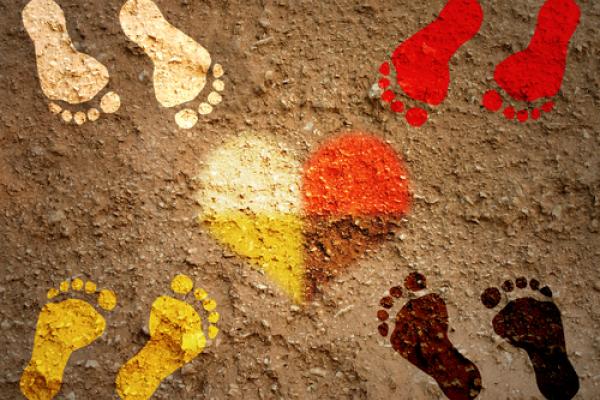I was in my office on a quiet afternoon when I saw the car pull into the parking lot.
Those of us who work in churches are familiar with people stopping by seeking a bit of financial help. But people stop by churches for lots of reasons. It’s best to wait to see what they want before making assumptions.
As I watched the African-American gentlemen get out of his car, I sighed. My peaceful afternoon was going to be interrupted by yet another request for help. We could do that, but it would take some time. He came into the church and I greeted him.
“Hi, how are you?”
“Fine,” he said. “But I think I’m lost. I’ve got this appointment at a business near here, but I think I missed a turn. Can you help me figure out where it is?”
So why did I assume he was looking for a handout? The only variable was the color of his skin. And in that moment, I realized how quickly I make judgments about people based on stereotypes that lurk within me. And I was grateful that I had kept that stereotype to myself when I greeted the man.
That scene has replayed itself in my mind several times in this summer of racial and ethnic ugliness. It is a vivid reminder of how we all carry certain sets of images about people who are different from us. And it was a reminder that we constantly need to both acknowledge and overcome the stereotypes we carry with us.
After George Zimmerman was found not guilty of murder in the Trayvon Martin case, President Obama spoke in very personal terms of what it’s like to be on the receiving end of stereotypes.
"There are very few African-Americans who have not had the experience of getting on an elevator and a woman clutching her purse nervously and holding her breath until she had the chance to get off,” the president noted.
Then there was Marc Anthony singing “God Bless America” at the baseball All-Star game. And 11-year-old Texas-born Sebastien De La Cruz singing the national anthem at the NBA Playoffs.
In both cases, Twitter lit up with comments about how un-American this was. The raw prejudice against Latinos — even if they were born in the U.S. and grew up here — was on vivid display.
Then there was the suspension of Milwaukee Brewers star Ryan Braun for using performance-enhancing drugs. The suspension set off a flurry of anti-Semitic tweets because Braun is Jewish.
Yes, it is easy to let your stereotypes fly free on Twitter, but it’s just as easy to let them fly around the bar or kitchen table. And it’s easy to let those stereotypes control your behavior.
So two thoughts. First, it’s really important to push back against this sort of venom. The notion of being “politically correct” draws a lot of sneers, but really, what it’s all about is treating people with respect. The dream Martin Luther King gave voice to 50 years ago this month is one rooted in respect for the differences among us.
Second, since we all carry stereotypes — just as I did with the gentleman who arrived in our parking lot — we need to find ways to acknowledge those without letting them control our behavior. As we learned in the Trayvon Martin case, when we do let stereotypes take control, the results can be more than just hurtful. They can be deadly.
Phil Haslanger is pastor of Memorial United Church of Christ in Fitchburg, Wis., just outside of Madison. This column originally appeared in The Capital Times.
Image: Diversity image, antoniomas/ Shutterstock.com
Got something to say about what you're reading? We value your feedback!
